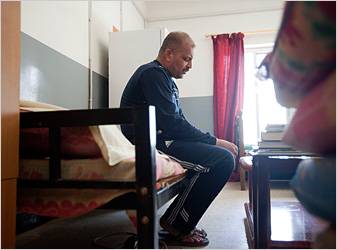U.S. Loses Ally as Iraqi General Waits for Trial

http://www.nytimes.com/2011/07/28/world/middleeast/28general.html?pagewanted=1&ref=middleeast

BAGHDAD When the commander of an elite Iraqi counterterrorist unit escaped arrest on a bribery charge earlier this year, a melee between his bodyguards and the police was captured on video and landed on YouTube. It was leaked, according to the commander and two people involved in the case, by American officials who believed he was innocent and wanted to discredit the Iraqi investigation by portraying it as a circus.
The commanders fate is a uniquely Iraqi tale of intrigue involving charges of corruption and competing versions of reality, and it shows the tension between a United States now on the verge of withdrawal and an increasingly assertive Iraqi government.
The facts in the case may be murky, but at least one consequence is clear: while the commander is in jail awaiting trial, the United States has lost a crucial partner in combating the Shiite militias that have been largely responsible for driving American combat deaths to the highest level in three years. American officials say that since the commanders arrest, joint operations with his brigade have ground to a near halt.
The commander, Gen. Nomon Dakhil, who later turned himself in, led the Emergency Response Brigade, a special forces unit under the Ministry of Interior. He now sits in a sweltering room in a police station in the Green Zone. Wearing an Adidas jersey and sitting in front of a table piled with religious texts and five cellphones, General Dakhil explained that earlier this year he cooperated with American units in southern Iraq to concentrate on militias attacking United States bases with rockets.
After targeting these guys, they stopped, he said. Now, he said, every day there are attacks on the Americans.
Maj. Gen. Jeffrey S. Buchanan, the top United States military spokesman, said in a statement that the brigades operations against these militias have been significantly reduced since General Dakhils arrest.
General Dakhil believes he ran afoul of Iraqi political and military leaders with ties to the militias. All the guys that worked against me are the Shias, said the general, who is a Shiite himself.
The fallout from the continuing investigation has been extensive. After the generals arrest in March on charges of taking a $50,000 bribe in a construction deal for a new military facility, some American investigators tried to involve themselves in the investigation, which was led by Raheem Hassan al-Uqailee, the head of Iraqs Integrity Commission, the countrys top anticorruption body.
Mr. Uqailee complained about the interference to the American ambassador, James F. Jeffrey. At least two American officials have been reprimanded for interfering in the Iraqis investigation, and one was ordered to leave the country. An internal investigation conducted by the Ministry of Interiors inspector general found no evidence that the general had accepted a bribe and declared the case a setup involving other Iraqi officials who had a grudge against the general for removing a relative of an official from his unit.
Mr. Uqailee says there is videotaped evidence from a sting operation that justifies continuing to pursue the criminal charges. But some who have seen the video say it is far from conclusive. Mr. Uqailee believes the corruption goes beyond General Dakhil, and says he has passed on information which he declined to describe in detail that suggests involvement by Americans in the corruption case that ensnared the general.
He said, We have told the general inspector from the Americans about what information we have about the American side, we gave them all the information about the case, but with regret I say that the Americans have worked against us on the case.
Stuart W. Bowen Jr., who leads the office of the special inspector general for Iraq reconstruction, confirmed that his office was investigating the case to determine if Americans were involved in any corrupt construction deal.
In April, Iraqi officials say, American troops tried to forcibly remove the general from custody. Mr. Uqailee said the troops tried to free General Nomon from prison, but that Iraqi security forces refused to turn him over. There was a fight between them, with words not weapons, Mr. Uqailee said.
http://www.nytimes.com/2011/07/28/world/middleeast/28general.html?pagewanted=1&ref=middleeast

